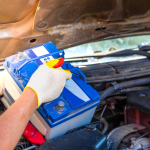When purchasing a new vehicle, protecting your investment is crucial. While standard auto insurance provides basic coverage, many drivers are unaware of the additional protection offered by car replacement insurance. This article explores the ins and outs of car replacement insurance, examining its benefits and helping you decide whether it’s a worthwhile addition to your policy.
What Is Car Replacement Insurance?
Understanding the Basics
Car replacement insurance is a type of coverage that provides a brand-new vehicle of the same make and model if your car is totaled within a certain period, usually the first one to two years after purchase. Unlike standard auto insurance, which only pays out the depreciated value of your vehicle, car replacement insurance covers the cost of replacing your new car with a brand-new one.
This type of insurance is particularly beneficial for new car owners because vehicles typically lose a significant portion of their value as soon as they are driven off the lot. Car replacement insurance ensures you’re not left with a financial shortfall if your new car is written off early in its life.
How Does It Differ From Gap Insurance?
While car replacement insurance and gap insurance may seem similar, they serve different purposes. Gap insurance covers the difference between the actual cash value of your car and the amount you owe on your auto loan or lease. It’s beneficial if you owe more on your loan than the car is worth.
Car replacement insurance, on the other hand, focuses on providing you with a new vehicle rather than just covering the gap. It’s designed for drivers who want the peace of mind that comes with knowing they can replace their new car with an identical one if it’s totaled.
Read More: 2025 Toyota GR Corolla: New Features and Performance Upgrades
The Benefits of Car Replacement Insurance
Financial Protection
One of the main benefits of car replacement insurance is the financial protection it offers. New cars depreciate quickly, often losing up to 20% of their value in the first year. If your car is totaled, standard insurance may only cover the depreciated value, leaving you to pay the difference if you want to buy a new car. Car replacement insurance covers this gap, ensuring you can afford to replace your vehicle with a new one.
This coverage is especially valuable for those who purchase higher-end vehicles or those that depreciate rapidly. It ensures that you won’t have to settle for a lesser vehicle or take on additional debt to replace your car.
Peace of Mind
Another significant advantage of car replacement insurance is the peace of mind it provides. Knowing that your investment is fully protected allows you to drive with confidence. In the unfortunate event of an accident that totals your car, you won’t have to worry about the financial strain of replacing it.
This peace of mind is particularly beneficial for new car owners who want to protect their significant investment. It allows you to enjoy your new vehicle without the constant worry of potential financial loss.
Potential Drawbacks of Car Replacement Insurance
Higher Premiums
While car replacement insurance offers valuable protection, it does come at a cost. Adding this coverage to your policy will increase your insurance premiums. The amount varies depending on the insurer, the type of car, and your location, but it’s important to weigh this additional cost against the benefits.
For some drivers, the added premium may be worth the security it provides. However, if you’re already paying high insurance rates, the additional cost of car replacement insurance may not be feasible.
Limited Availability
Car replacement insurance is not available from all insurers, and its availability can vary by state and policy. Additionally, there are often restrictions on when you can add this coverage, such as within the first year of owning your vehicle. This limited availability means you’ll need to carefully research and choose an insurer that offers this option.
If you’re considering car replacement insurance, it’s essential to check with your insurance provider to see if it’s available and to understand the specific terms and conditions. Some policies may have limitations on the types of vehicles covered or the duration of the coverage.
Is Car Replacement Insurance Right for You?
Consider Your Financial Situation
Before deciding on car replacement insurance, consider your financial situation. If you can comfortably afford to replace your vehicle out of pocket or have a substantial emergency fund, you may not need this additional coverage. On the other hand, if a total loss would put you in a difficult financial position, car replacement insurance could be a smart investment.
Evaluate your budget and determine whether the added premium fits within your financial plan. Remember that car replacement insurance is an optional coverage, so it’s important to assess whether it aligns with your financial goals and needs.
Assess Your Vehicle’s Depreciation Rate
The rate at which your vehicle depreciates should also influence your decision. Some vehicles hold their value better than others, meaning the gap between the car’s purchase price and its depreciated value may not be as significant. If your vehicle is known for rapid depreciation, car replacement insurance can be particularly beneficial.
Research the depreciation rates of your specific make and model to determine how quickly your vehicle may lose value. If the depreciation is steep, car replacement insurance may provide you with crucial protection against financial loss.
How to Purchase Car Replacement Insurance
Adding It to Your Existing Policy
If you decide that car replacement insurance is right for you, the next step is to add it to your existing auto insurance policy. Contact your insurance provider to inquire about the availability of this coverage and to get a quote for the additional premium. Make sure to review the policy terms, including the duration of the coverage and any specific requirements.
Adding car replacement insurance is usually straightforward, and your insurer can guide you through the process. Be sure to ask any questions you may have to fully understand the coverage you’re purchasing.
Comparing Insurance Providers
If your current insurance provider doesn’t offer car replacement insurance, consider shopping around for a new policy. Many insurers provide this coverage as an add-on, and it’s worth comparing quotes from different companies to find the best rate. Online comparison tools can simplify this process, allowing you to quickly see which providers offer car replacement insurance and at what cost.
Take the time to compare policies and ensure that the coverage offered meets your needs. Keep in mind that the cheapest policy isn’t always the best; consider the reputation of the insurer and the specific details of the coverage.
Conclusion
Car replacement insurance can be a valuable addition to your auto insurance policy, providing financial protection and peace of mind. While it may come with higher premiums, the benefits of knowing that you can replace your new vehicle with an identical one can outweigh the costs. Before making a decision, assess your financial situation, consider your vehicle’s depreciation rate, and compare insurance providers to find the best coverage for your needs.
In the end, car replacement insurance is about safeguarding your investment and ensuring that you’re not left financially vulnerable in the event of a total loss. By carefully evaluating your options, you can make an informed decision that best protects your financial future.











